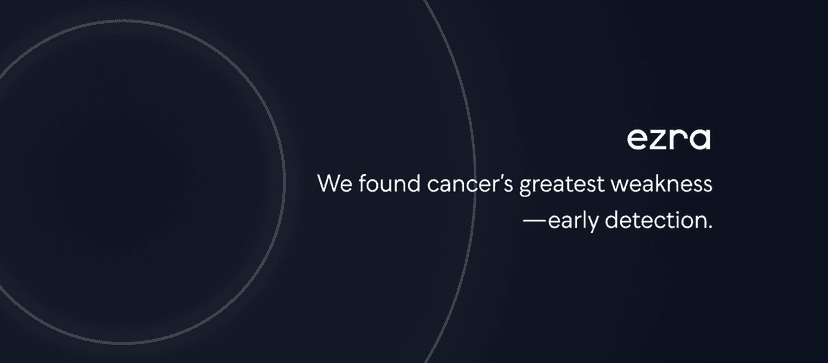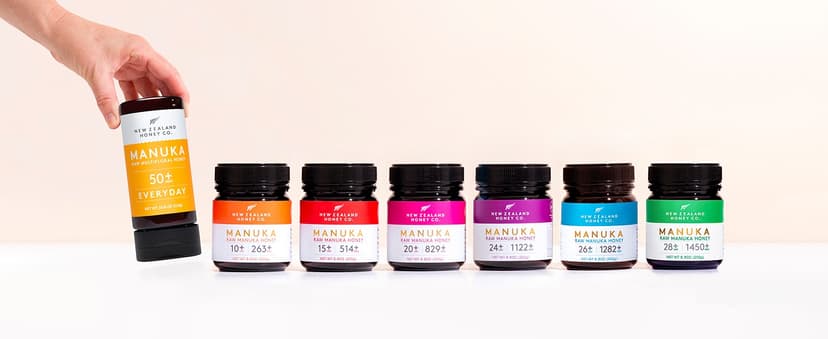Cancer is one of the biggest health concerns worldwide, but many people don't know that they can take steps to reduce their risk. By making smart choices in your daily life, you can help protect yourself against this disease. This article will explore different ways to lower your cancer risk, from eating the right foods to getting regular screenings.
Key Takeaways
- Eating a diet rich in fruits, vegetables, and whole grains can help lower your cancer risk.
- Regular screenings can catch cancer early, making it easier to treat.
- Avoiding tobacco and limiting alcohol can significantly reduce your risk of cancer.
- Maintaining a healthy weight through diet and exercise is crucial for cancer prevention.
- Vaccinations, like those for HPV and Hepatitis B, can protect against cancers caused by infections.
The Role of Diet in Cancer Prevention
Foods That Fight Cancer
A healthy diet is key to overall health and can help lower the risk of many cancers. Certain foods have been shown to reduce cancer risk. These include fruits, vegetables, whole grains, and lean proteins. These foods are rich in vitamins, minerals, and antioxidants that help protect cells from damage.
The Impact of Processed Foods
Processed foods often contain high levels of sugar, unhealthy fats, and preservatives. These can contribute to weight gain and increase the risk of cancer. Limiting the intake of processed foods and choosing fresh, whole foods can make a significant difference in cancer prevention.
The Benefits of a Plant-Based Diet
A plant-based diet focuses on foods derived from plants, including fruits, vegetables, nuts, seeds, oils, whole grains, legumes, and beans. This type of diet is high in fiber and low in calories, which helps maintain a healthy weight. Maintaining a healthy weight is one of the most important factors in reducing cancer risk.
Eating a variety of plant-based foods can provide essential nutrients and help lower the risk of cancer. Aim to fill at least two-thirds of your plate with plant-based foods for optimal health.
The Importance of Regular Screenings
Types of Cancer Screenings
Regular screenings are essential for catching cancer early when it is most treatable. Different types of screenings are recommended based on age, gender, and risk factors. Common screenings include mammograms for breast cancer, Pap smears for cervical cancer, and colonoscopies for colon cancer.
When to Get Screened
Knowing when to get screened can save your life. Guidelines vary, but generally, women should start getting mammograms at age 40, while both men and women should begin colon cancer screenings at age 50. It's crucial to talk to your healthcare provider to determine the best screening schedule for you.
How Screenings Can Save Lives
Screenings can detect cancer before symptoms appear, making treatment more effective. For example, colonoscopies can find and remove polyps before they turn into cancer. Regular screenings can significantly lower the risk of dying from cancer.
Early detection through regular screenings is one of the most effective ways to fight cancer. Don't wait for symptoms to appear; be proactive about your health.
Avoiding Risky Behaviors to Lower Cancer Risk
The Dangers of Tobacco Use
Tobacco use is one of the leading causes of cancer. Smoking cigarettes can lead to cancers of the lung, mouth, throat, and more. Even secondhand smoke can increase cancer risk. Quitting smoking can significantly lower your chances of developing cancer.
Safe Practices to Prevent Infections
Certain infections can increase the risk of cancer. For example, human papillomavirus (HPV) can lead to cervical cancer, and hepatitis B and C can cause liver cancer. Practicing safe behaviors, like using condoms and getting vaccinated, can help prevent these infections.
Limiting Alcohol Consumption
Drinking too much alcohol can also raise your cancer risk. Alcohol is linked to cancers of the mouth, throat, esophagus, liver, and breast. Limiting your alcohol intake to one drink per day for women and two for men can help reduce this risk.
Making healthy changes now can make a big difference in your future health. Avoiding risky behaviors is a key step in lowering your cancer risk.
The Connection Between Body Weight and Cancer
How Obesity Increases Cancer Risk
Carrying extra weight, especially being obese, can significantly raise the risk of various cancers. Fat cells produce hormones and proteins that can cause inflammation and promote cancer growth. For instance, estrogen from fat cells can increase the risk of breast cancer after menopause. Additionally, high levels of insulin and blood sugar linked to obesity can lead to colon and pancreatic cancers.
Maintaining a Healthy Weight
Keeping a healthy weight is crucial for lowering cancer risk. Here are some tips to help maintain a healthy weight:
- Eat a balanced diet rich in fruits, vegetables, and whole grains.
- Limit the intake of processed and high-sugar foods.
- Engage in regular physical activity, aiming for at least 30 minutes a day.
- Monitor your weight regularly and seek medical advice if needed.
Exercise as a Preventative Measure
Regular exercise not only helps in weight management but also reduces cancer risk. Physical activity can lower levels of certain hormones, like insulin and estrogen, and improve the immune system. Aim for a mix of aerobic exercises, like walking or swimming, and strength training exercises.
Maintaining a healthy weight through diet and exercise is one of the most effective ways to reduce your cancer risk.
Protecting Yourself from Environmental Risks
The Risks of UV Radiation
To lower the risk of melanoma and other types of skin cancer, take these steps:
- Avoid direct sunlight between 10 a.m. and 4 p.m., which are peak burning hours.
- Wear protective clothing like hats and long-sleeve shirts.
- Use sunscreens with SPF 30 or higher.
- Never use tanning beds or booths.
- Protect children by setting a good example with sun safety.
Reducing Exposure to Carcinogens
Avoid exposure to industrial and environmental toxins such as asbestos fibers, benzene, aromatic amines, and polychlorinated biphenyls (PCBs). These substances are known to increase cancer risk.
The Role of Pollution in Cancer Risk
Pollution can also play a role in increasing cancer risk. Here are some steps to reduce exposure:
- Avoid areas with high air pollution when possible.
- Use air purifiers in your home to reduce indoor pollutants.
- Support and advocate for policies that aim to reduce pollution levels.
Taking these steps can significantly lower your risk of developing cancer due to environmental factors.
Vaccinations and Their Role in Cancer Prevention
HPV Vaccination
The HPV vaccine is a powerful tool in preventing certain types of cancer. It can help prevent cervical, penile, anal, and throat cancers. The vaccine is recommended for both boys and girls, ideally between the ages of 9 and 12, but it can be given up to age 26.
Hepatitis B Vaccination
Getting vaccinated against hepatitis B can significantly reduce the risk of liver cancer. This vaccine is becoming more common and is an important step in cancer prevention.
Future Vaccines on the Horizon
Researchers are continually working on new vaccines to prevent cancer. These future vaccines offer hope for even more effective cancer prevention strategies.
Vaccinations are a key part of cancer prevention, offering protection against infections that can lead to cancer. By staying up-to-date with recommended vaccines, you can lower your risk of developing certain types of cancer.
The Impact of Lifestyle Changes on Cancer Risk
The Benefits of Quitting Smoking
Quitting smoking is one of the most important steps you can take to lower your cancer risk. Smoking is linked to many types of cancer, including lung, throat, and mouth cancer. When you stop smoking, your body begins to heal itself, and your risk of cancer decreases over time.
Incorporating Physical Activity
Regular physical activity can help reduce your cancer risk. Exercise helps you maintain a healthy weight, boosts your immune system, and improves your overall health. Aim for at least 30 minutes of moderate exercise most days of the week.
Stress Management and Cancer Risk
Managing stress is also important for reducing cancer risk. Chronic stress can weaken your immune system and lead to unhealthy behaviors like smoking or overeating. Techniques such as meditation, deep breathing, and yoga can help manage stress effectively.
Making healthy lifestyle changes can significantly lower your risk of cancer. Small steps, like quitting smoking, exercising regularly, and managing stress, can make a big difference in your overall health.
Conclusion
Preventing cancer might seem overwhelming, but it's possible by making simple changes in your daily life. Eating healthy foods, staying active, and avoiding risky behaviors can make a big difference. Regular screenings and talking to your doctor about your concerns are also important steps. While not all cancers can be prevented, taking these actions can significantly lower your risk. Remember, every small change counts towards a healthier future.
Frequently Asked Questions
Can a healthy diet really help prevent cancer?
Yes, eating a diet rich in fruits, vegetables, and whole grains can help lower your risk of developing cancer. Avoiding processed foods and red meat can also make a big difference.
How often should I get screened for cancer?
It depends on the type of cancer and your personal risk factors. Generally, adults should start getting screened in their 40s or 50s, but it's best to talk to your doctor for specific recommendations.
Is smoking the only risky behavior that increases cancer risk?
No, other risky behaviors include excessive alcohol consumption, unsafe sex, and sharing needles. These can lead to infections that increase cancer risk.
Can being overweight really increase my risk of cancer?
Yes, being overweight or obese can increase your risk for several types of cancer. Maintaining a healthy weight through diet and exercise is important for cancer prevention.
Do vaccines really help in preventing cancer?
Yes, vaccines like the HPV and Hepatitis B vaccines can help prevent cancers caused by these viruses. Scientists are working on more vaccines to help prevent other types of cancer.
Can lifestyle changes actually make a difference in cancer risk?
Absolutely. Quitting smoking, eating a healthy diet, exercising regularly, and managing stress can all help lower your risk of developing cancer.
























